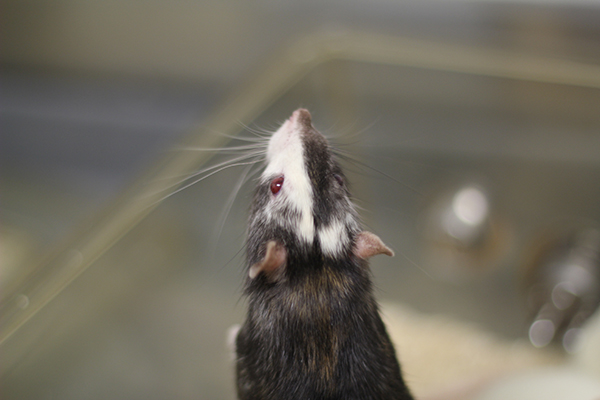
USC Stem Cell principal investigator Qi-Long Ying and his team are pleased to introduce a new transgenic animal—the conditional and inducible gene knockout rat. Created using embryonic stem cell-based technology, these remarkable rats allow researchers to control both where and when any specific gene is expressed.
For nearly 25 years, transgenic mice have allowed scientists to study and model a wide range of genetic diseases that also occur in humans, and transgenic rats should provide a powerful new tool.
“The rat is not a big mouse,” said Ying, associate professor of stem cell biology and regenerative medicine. “Physiologically and evolutionarily, the rat is much closer to the human. So many diseases, especially neurological diseases, you can only mimic in a rat, not in a mouse. And we can now do the same genetic modification in rats that people have been able to in mice.”
Conditional gene knockout rats lack one or more genes only in specific cell types, tissues or organs—such as the brain, liver, skin or bone marrow. This is important in cases in which deleting a gene in all tissues would be lethal to the animal.
Inducible gene knockout rats express a gene normally until they are exposed to a drug called Tamoxifen, which can be added to their food or water. This allows researchers to turn off a particular gene at a specific point in the rat’s development, whether at the age of three days or three months.
Conditional and inducible rats allow for both spatial and temporal control of gene expression.
The group has also succeeded in reliably and efficiently generating knock-in rats, which have one or more extra reporter genes incorporated into their DNA.
His team made these breakthroughs with support from a $1.33 million Tools and Technologies grant from the California Institute for Regenerative Medicine (CIRM). He’ll continue the project with a $3 million grant from the National Institutes of Health with co-investigators Zea Borok, Bangyan Stiles and Li Zhang from USC; Ching-Ling (Ellen) Lien from Children’s Hospital Los Angeles; and Elizabeth Bryda from the University of Missouri.
Previously, Ying and a team of researchers made one of Science magazine’s “Top 10 Breakthroughs of 2010” by using embryonic stem cell-based gene targeting to produce the world’s first knockout rats, modified to lack one or more genes.
The Ying Lab enabled this series of important advances by being one of the first labs to derive authentic pluripotent embryonic stem cells from rats.
“Maybe in the future we will develop a cure for some diseases because of the knowledge we learn from using rat models,” said Ying. “That’s very possible. So we want more researchers from USC and beyond to come use this technology.”
